M100PFS - PolarFire RISC-V SoC-FPGA Module
First Industry SoC-FPGA Solution based on Multicore RISC-V Architecture

The M100PFS is based on the PolarFire SoC FPGA architecture by Microchip and combines high-performance 64-bit RISC-V cores with outstanding FPGA technology. The platform integrates a hardened real-time, Linux capable, RISC-V-based MPU subsystem on the mid-range PolarFire FPGA family, bringing low power consumption, thermal efficiency and defence grade security to embedded systems.
The RISC-V CPU micro-architecture implementation is a simple 5 stage, single issue, in-order pipeline that doesn’t suffer from the Meltdown and Spectre exploits found in common out-of-order machines. All five CPU cores are coherent with the memory subsystem allowing a versatile mix of deterministic real time systems and Linux in a single multi-core CPU cluster.
Contact the ARIES Embedded Team to discuss your special requirements on a PolarFire SoC design and how we can help you to achieve optimal results.
Features
- Microsemi PolarFire SoC FPGA
- MPFS025T
23KLE, 68 math blocks, 4x SERDES 12.5Gbit/s, 2x PCIe root port/end point - MPFS095T, available on request
93KLE, 292 math blocks, 4x SERDES 12.5Gbit/s, 2x PCIe root port/end point - MPFS160T, available on request
161KLE, 498 math blocks, 4x SERDES 12.5Gbit/s, 2x PCIe root port/end point - MPFS250T
254KLE, 784 math blocks, 4x SERDES 12.5Gbit/s, 2x PCIe root port/end point
- MPFS025T
- Quad 64-bit RV64GC cores, 667 MHz
- 64-bit RV64IMAC monitor core, 667 MHz
- Processor I/O
- 2x Gigabit Ethernet
- 1x USB 2.0 OTG
- 1x MMC 5.1 SD/SDIO
- 2x CAN 2.0 A and B
- Execute in place Quad SPI flash controller
- 5x multi-mode UARTs
- 2x SPI, 2 I2C
- RTC, GPIO
- 5x watchdog timers
- timers
- Processor to FPGA Interconnect
- 2 64-bit AXI4 processor-to-fabric interfaces
- 3 64-bit AXI4 fabric-to-processor interfaces
- 1 32-bit APB processor-to-fabric interface
- 1 to 8 GByte DDR4 RAM dedicated to the HMS
- 512MByte to 4 GByte DDR4 RAM dedicated to the FPGA
- 128 Mbit to 1GBit NOR Flash
- 8 - 64 GByte eMMC memory
- Clock distribution
- default configuration:
- Gigabit Ethernet
- UART
- CAN
- SPI
- I²C
- USB
- single 3,3V supply
- size 74mmx42mm
- 2 x Samtec QSH-090-01-F-D-A board-to-board interconnect
Block Diagram
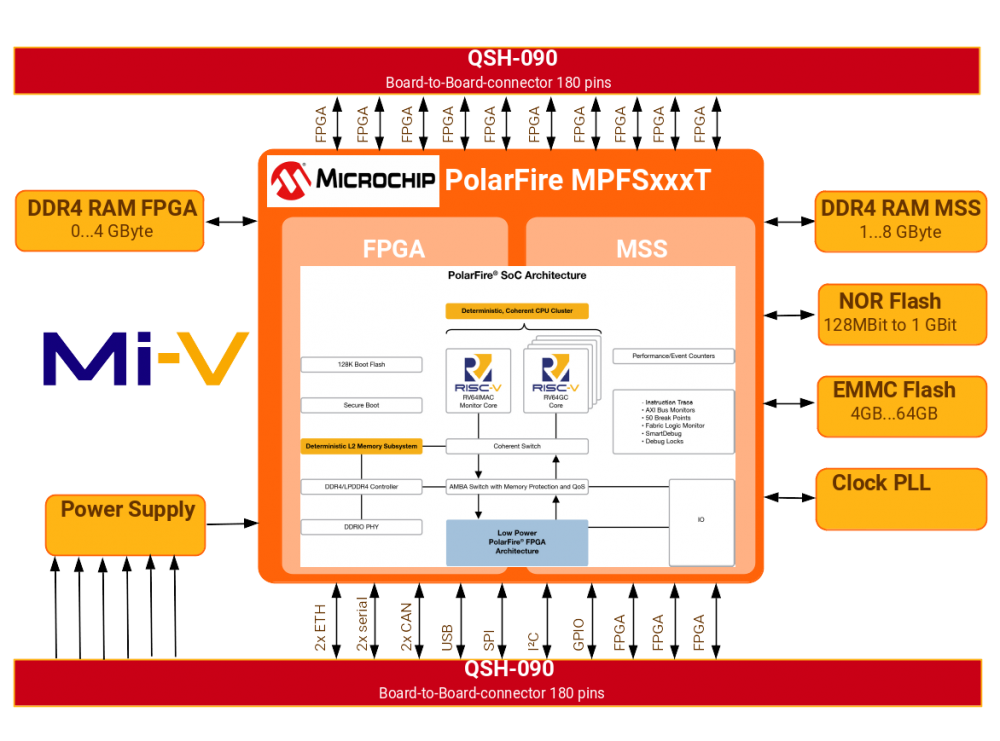
Pictures
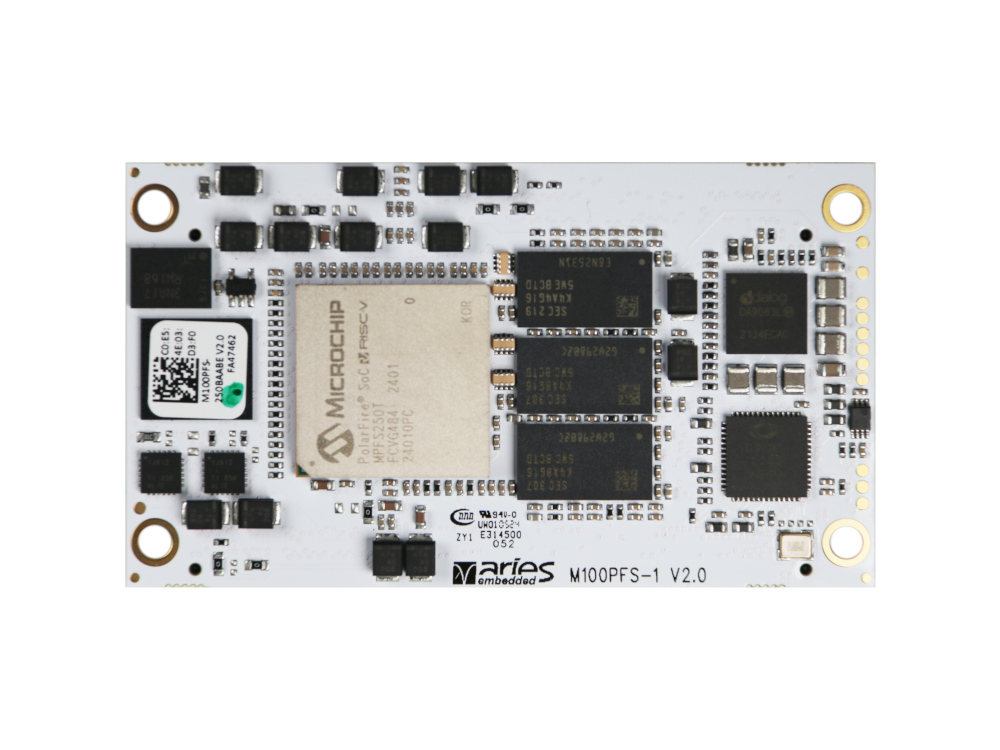
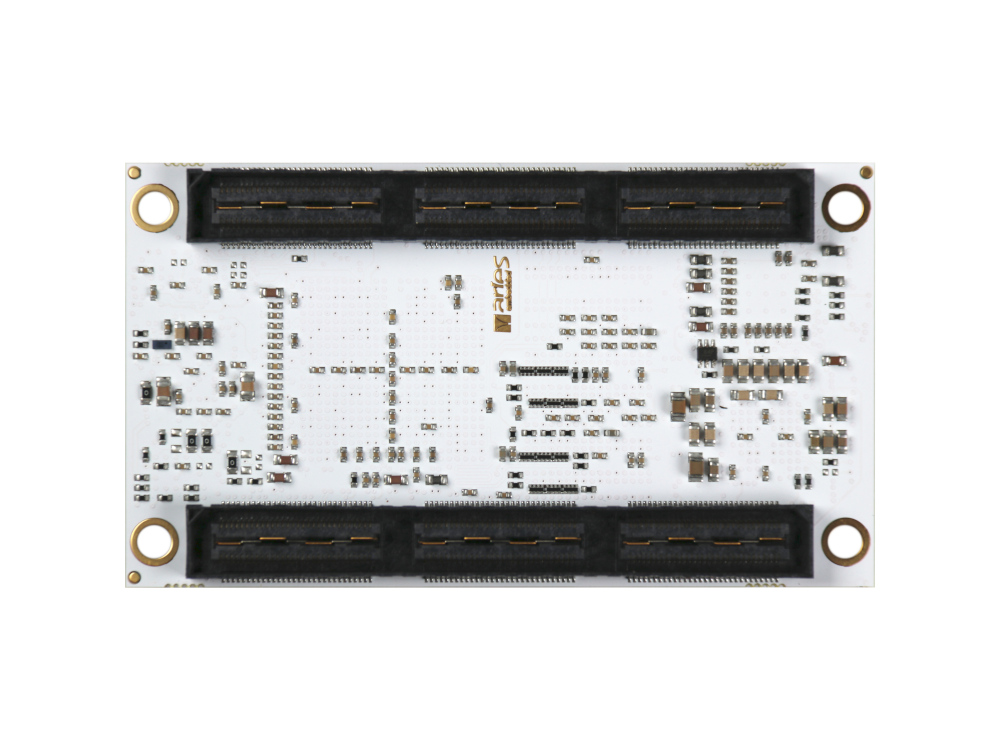
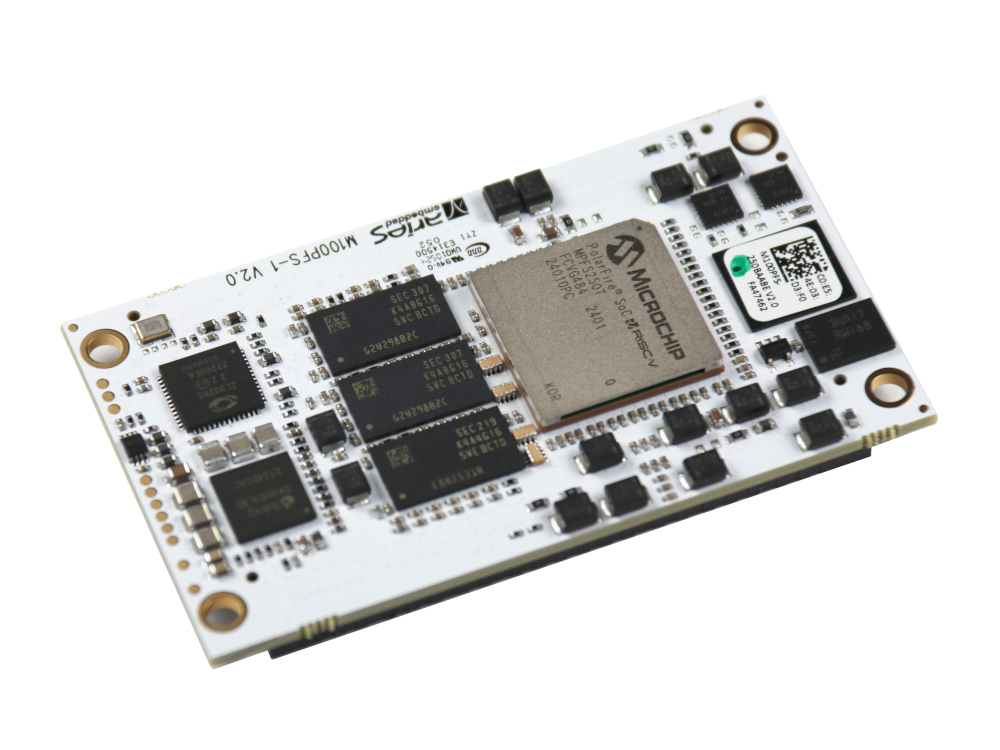
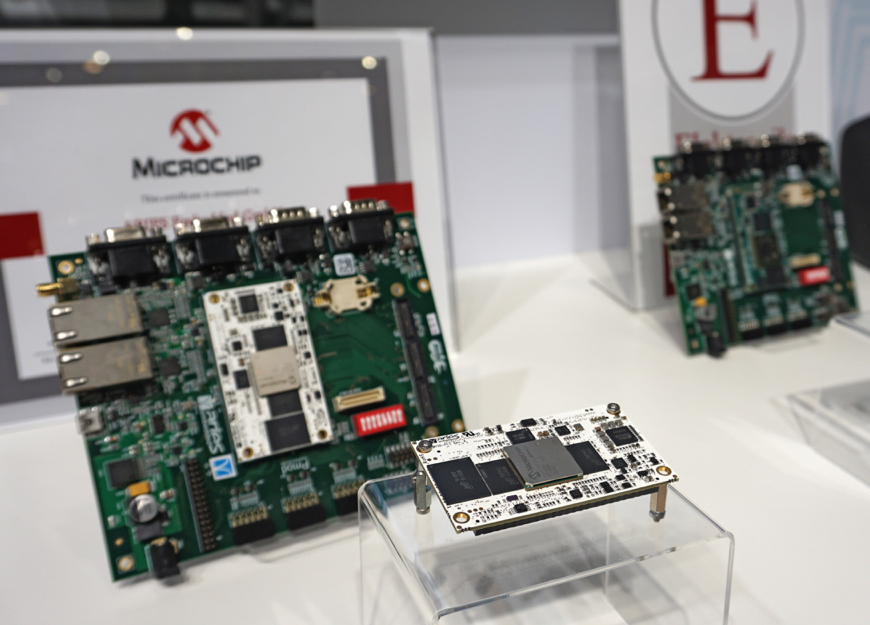
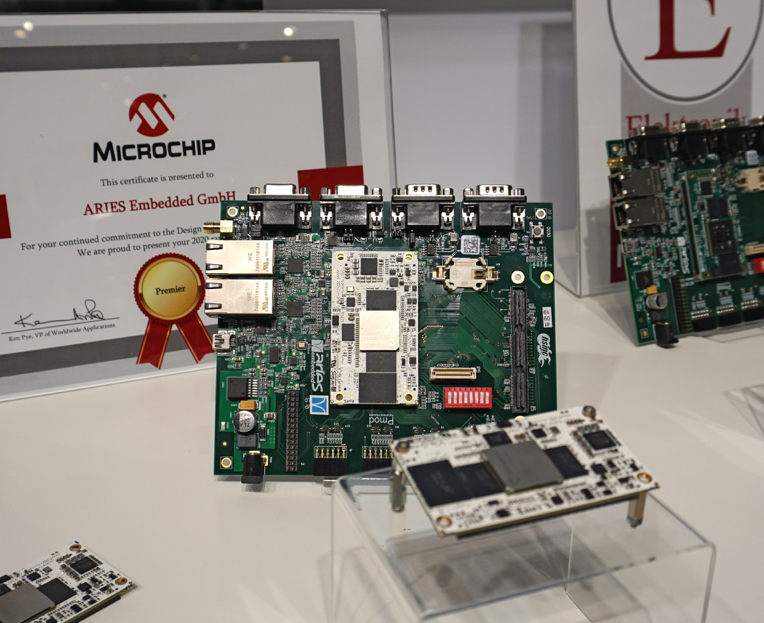
Order Codes
M100PFS-250BAAB
- MPFS250T PolarFire SoC FPGA
- 254 KLEs
- 784 Math Blocks (18x18 MACC)
- 16x 12.5 Gbps SERDES lanes
- 2x PCIe Gen2 end points/root points
- Total User I/O: MSS-IO / HSIO / GPIO / XCVRs: 136 / 60 / 48 / 4
- 2GB DDR4 SDRAM dedicated to the HMS
- 512MB DDR4 SDRAM dedicated to the FPGA
- 32 MBit SPI NOR Flash
- 4GByte eMMC
- size 74mm x 42mm
- 2 x Samtec QSH-090-01-F-D-A board-to-board interconnect
- 0°C...+70°C
M100PFS System on Modules offer
Low-Power
- Low device static power
- Low inrush current
- Low-power transceivers
Reliability
- FPGA configuration cells single-event upset (SEU) immune
- Built-in SECDED and memory interleaving on FPGA fabric LSRAMs
- SECDED on all processor memories
- System controller suspend mode for safety-critical designs
Security
- Cryptography Research Incorporated (CRI)-patented differential power analysis (DPA) bitstream protection
- Integrated dual physically unclonable function (PUF)
- 56 KB of secure, non-volatile memory (sNVM)
- Built-in tamper detectors and countermeasures
- Digest integrity check for FPGA, μPROM, sNVM, and eNVM
Target Markets
M100PFS SoMs are endorsed for various target markets as
Smart Embedded Vision
- Delivering 4K video and smart imaging
- Applying AI/ML
- Applying imaging to portable products
- Extending battery life
- Eliminating thermal fans and heatsinks
- Achieving secure surveillance
Industrial Automation
- Expanding factory automation networks
- Growing number of M2M sensors and nodes
- Securing decentralized computing
- Improving portability
- Achieving cyber security
- Improving functional safety
Communications
- Significantly improving network capacity and coverage with limited spectrum and CAPEX
- Growing IoT with minimal energy consumption
- Lowering physical and carbon footprint
Internet of Things
- Ensuring lowest power, most secure, edge and gateway devices
- Enabling data processing at the edge, distributed networking systems
- Increasing IoT automation and networking
- Delivering maximum performance with lowest carbon footprint